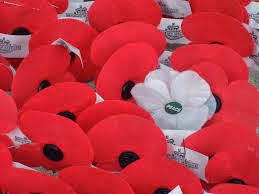From what was being said, it would seem there can at times be huge dilemmas when accepting Friends into membership. I wonder if this is true of other Quaker meetings out there.
It seemed to me that the issue of membership provides an opportunity to look honestly at who we are and what we represent. Are we considering ourselves to be Christian these days as our founder members did or sneaking into the various ecumenical groups under false pretences? Do we see ourselves as still being a religion, or more relaxed (liberals with a small "l"). Should Quakers make the saving of planet earth a priority, adapting to become more like a way of life these days? Is it now all about culture? Should all Quakers be conscientious objectors or can such matters be left for the individual to decide?
It is always good to hear from those who talk very enthusiastically of their first time in a Quaker meeting and how they immediately feel at home. Perhaps however there are others who have looked around the Meeting House on a Sunday morning, then sat through notices and wondered how came they to be among so very different a group of people to themselves. At times like these I have been reassured by my love of history. We have always had individuals who were not quite like the rest. Its a little hard for me to imagine George Fox sitting down quietly to a men's creative listening group, or putting himself on the flower rota, though sometimes I do like to try!
Some of the more vigorous ministry from Early Quakers such as interrupting church services, shouting out abuse to the people of Litchfield, burning your musical instruments so you can walk about with something resembling a barbecue on your head, or going naked for a sign, might easily attract the attention of elders these days. All of these individuals understood the importance of drama to communicate a message, how necessary this approach was to be inclusive in a semi literate society and absolutely sane.
So what is Quakerism really? Are we consistent, or subject to a changing environment, irrevocably changed from the old days? Who do now we think we are?
Although it is often said that we began in 1652, the climate which made so many individuals receptive to the message of Quakerism developed during the English Civil War. Many regimental chaplains who enlisted for the Parliament side soon became disillusioned and returned home to their parishes. In the absence of the usual spiritual leadership, Parliament resolved this each soldier in the New Model Army should receive a pocket Bible. This vital piece of military equipment for the time encouraged soldiers to work things out on their own. That characteristic of being on a campaign and needing to seek out truth is I believe,what defines us even today as being Quakers.
Our Meetings for worship do not create membership through the ability to accept a creed. Instead it is process whereby we come to a belief rather than the belief itself which matters. This feature enables Meetings to have considerable diversity, without compromising its identity in any way.
So what should we be asking when an individual asks to join us? Since I have never been an Elder or part of those gatherings that decide such things, the best resource I have available is our history.
1- Are you a Seeker after Truth?
Historically Quakers can be at their worst when instead of focusing on the opportunity of their own unique spiritual journey they start looking around at each other and gossiping among themselves. Instead of allowing a religion of freedom, and personal responsibility, there is the opportunity to judge, so much emphasis on our way of life, and tremendous pressure to conform.
2-Do you require leadership?
The process of being a Quaker is about our unique relationship with God. It does not require interference or distractions. If you are looking for human intervention, it could be very frustrating to worship in silence.
3-Do you understand what it is like to be human?
At times Quakers can come over as being arrogant. A knowledge of our own weakness and dependence helps make us receptive. Since we are all a part of God's Creation, it is not appropriate to create hierarchies within a Meeting, or see Quakers as being superior to any other faith.
3-Are you Convinced?
Quakers take responsibility for their own spiritual journey. This practice would not make much sense if we did not trust God's love and ability to guide us.
If you genuinely care about a person, it is natural to want the best thing for them. Love for another human being may be expressed in many ways. It is easy to see love as we welcome Friends into membership of a Meeting. Surely it is also a demonstration of love not to mislead or obstruct those might benefit from a different framework for their journey?




.jpg)
































